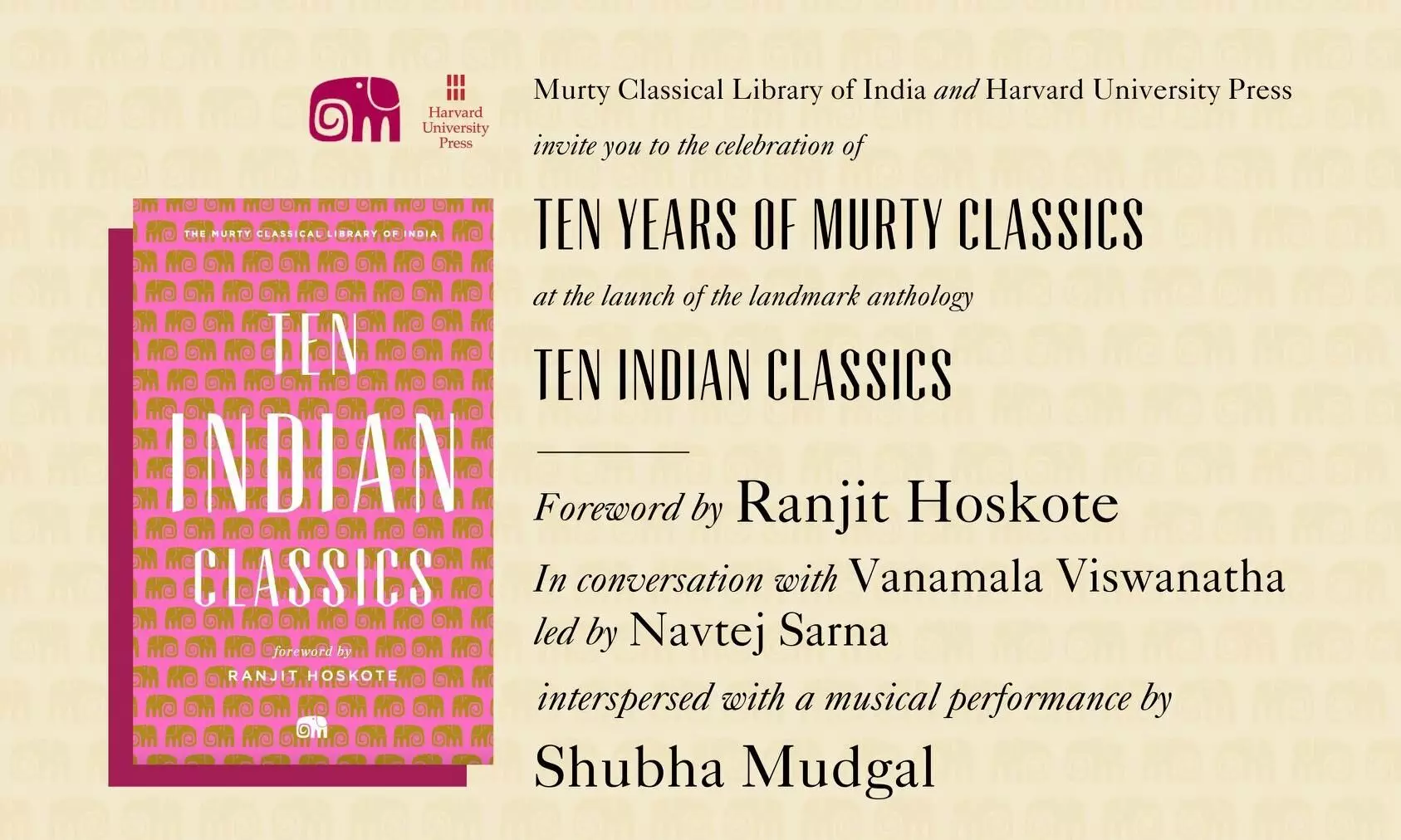A mesmerising evening of literary classics and musical renditions

Living traditions form the very foundation of our culture, a bedrock of heritage, traditions and philosophies that transcend geographical boundaries and bind the sub-continent in a kaleidoscope of ruminations. These traditions have been passed on through generations and a storyteller comes along once in a century and weaves these mesmerising droplets of wisdom into a beautiful collection of works in the language of the time.
The ‘Murty Classical Library of India’ has taken a unique conversation on classics and their translations and their relevance in an increasingly digital juxtaposed world. On November 6, with the talented Shubha Mudgal rendering the originals in her mellifluous voice, the Stein Auditorium at the India Habitat Centre resounded with the words of Surdas and Mir Taqi Mir as eminent writer and founder of ‘A Suitable Agency’ brought to the audiences an engaging discussion with Ranjit Hoskote, Vanamala Vishwanatha and former ambassador Navdeep Sarna, who was the moderator for this engaging and vivacious panel discussion.
The ‘Murty Classical Library of India’ is the philanthropic baby of Dr Rohan Narayan Murty, who created an endowment of over 5.2 million dollars for the preservation and translation of literary classics from the vast repertoire of Indian literature through the ages. His idea was to create a wealth of easily understood translations that would be accessible to our current generations and that the rich and diverse literary heritage of India would find new beginnings in contemporary times. The ‘MCLI’ has worked with a cross-section of classics across genres and languages and has worked in association with translation experts across the world. ‘The Story of Manu’ by Allasani Peddana in its Telugu original found meaning in modern-day English through the efforts of Velcheru Narayana Rao and David Shulman. A selection of poems from the ‘Guru Granth Sahib’ were translated from ‘Gurmukhi’ by Nikky Gurinder Kaur Singh.
During the panel discussion, the audiences were introduced to the Kannada classic, ‘The Life of Harischandra’, written by 13th century poet, Raghavanka in a ‘shaptapadi’ (six-line verse) style. This medieval classic relates the life of King Harishchandra, whose penchant for telling the truth causes him much hardship including the loss of his kingdom and family. Resonant with onomatopoeia and assonance, the trials and tribulations of Harishchandra and related through vivid imagery and poetic license and continue to remain a favourite with Kannada readers. Vanamala Vishwanatha used her talent as an English educator to create access to this inimitable classic for a wider audience. She felt that the forces of modernity have been so strong that the humanities, especially languages have been unable to keep up with the transformation. That’s where the efforts of author and art curator Ranjit Hoksote, whose association with the ‘MCLI’ brought the event vividly to life, are to be lauded. Hoksote compares an anthology to a kaleidoscope, a set of prisms that form a set pattern and then change to a new pattern depending on how one sees it.
Then audiences had the piece de resistance of the evening - a musical rendering of the original verses of Soordas. Loosely based on the early evening ‘raag’ of Shyam Kalyan, ‘Radha tero badan ati niko’ was composed by Shubha Mudgal and set in ‘Taal Rupak’. The second composition was ‘Muraliya mohini bhayee’, also composed by Shubha ji and set in ‘Raag Mishra Khamaj’. The final piece for the evening was a ghazal by Mir Taqi Mir, ‘Log bahut poocha karte hain kya kahiye miyan kya hai ishq’. This evocative ghazal was set to music composed by Anish Pradhan.



